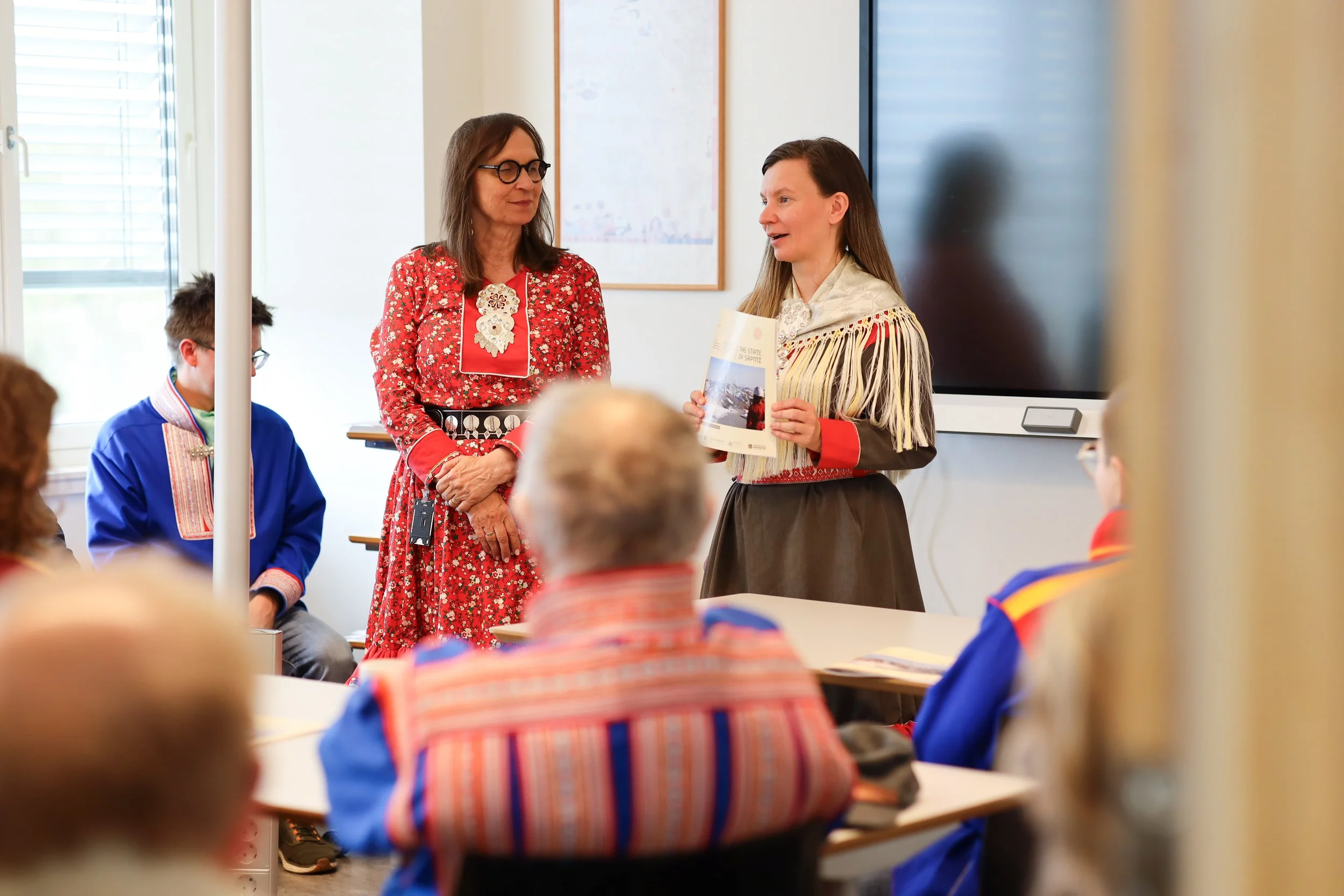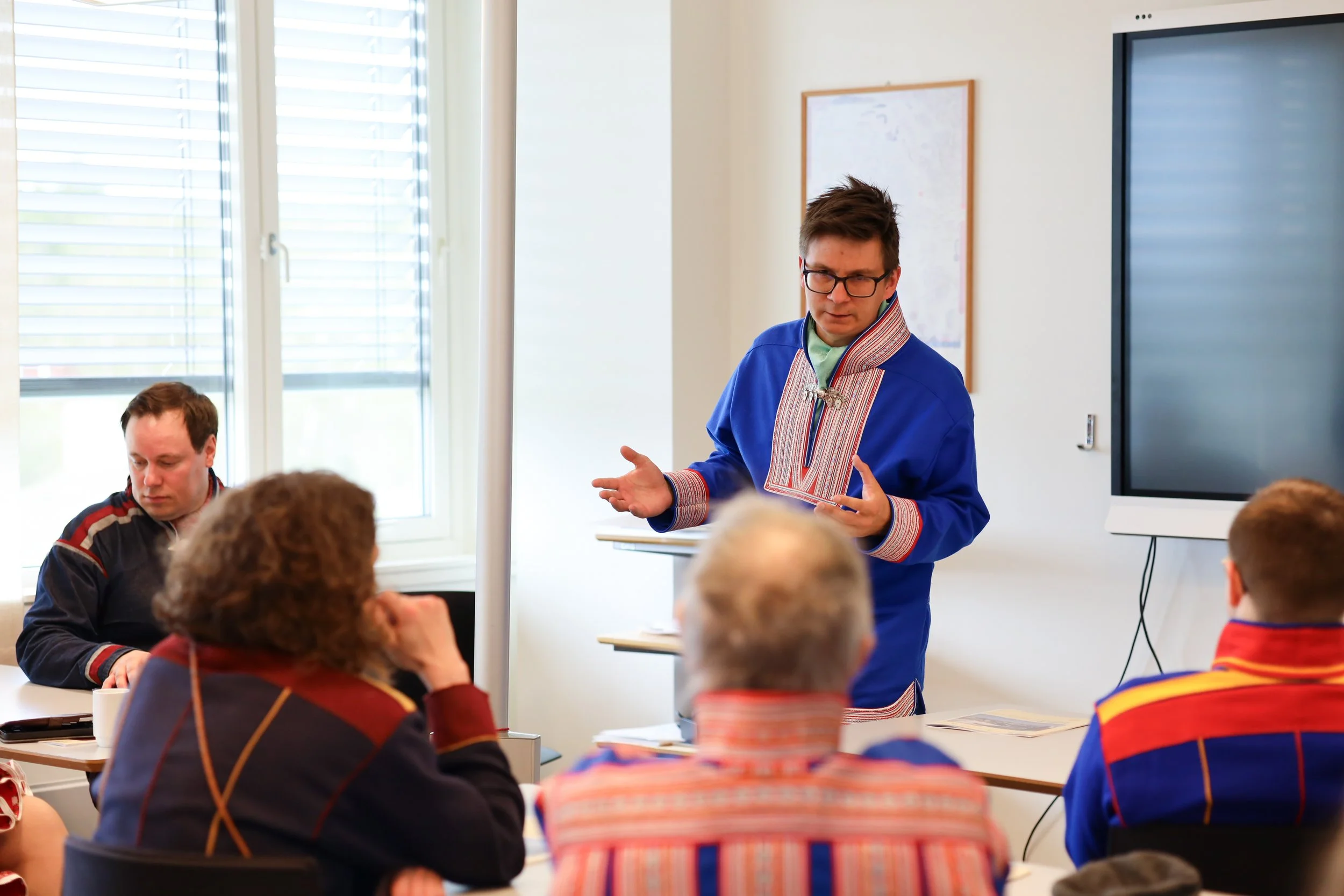New journal sheds light on Sámi rights gaps in the Nordic countries
The journal is a collaboration between the Saami Council, IWGIA, and Sámi Allaskuvla (Sámi University of Applied Sciences). Photo: Saami Council / Piera Heaika Muotka
The first two issues of The State of Sápmi journal have been published online. The journal aims to tackle socio-political issues within Sámi society and provide analysis and perspectives on Sámi rights. The project is funded by the Nordic Council of Ministers.
Eirik larsen. Photo: Saami Council / Piera Heaika Muotka
The first two issues draw on community perspectives and data from the Indigenous Navigator surveys conducted in Finland, Norway, and Sweden. Together, they highlight how constitutional recognition, self-determination, and rights related to reindeer husbandry are implemented – or undermined – in practice.
The first issue is written by Eirik Larsen, head of the human rights unit at the Saami Council, and focuses on Sámi constitutional recognition, the right to self-determination, and free, prior and informed consent (FPIC). The analysis shows a wide gap between international commitments and domestic implementation.
– Despite strong international frameworks, the Sámi people still face systematic obstacles in exercising their right to self-determination. National governments must move beyond symbolic recognition and ensure real influence over land, culture and governance, says Larsen.
“Reindeer husbandry is not only an economic activity but among the very foundations of Sámi culture.”
Ole-Anders Turi Photo: Saami Council / Piera Heaika Muotka
The second issue, by Ole-Anders Turi, research fellow at Sámi allaskuvla (Sámi University of Applied Sciences), examines Sámi reindeer husbandry through the lens of the UN Declaration on the Rights of Indigenous Peoples (UNDRIP). The findings reveal that land encroachment, weak consultation processes, and insufficient protection of grazing areas continue to challenge Sámi reindeer herders.
– Reindeer husbandry is not only an economic activity but among the very foundations of Sámi culture. Without stronger rights protections, it risks being undermined by state policies and industrial development, says Turi.
The State of Sápmi was officially launched during Lávdan Sámi Arena in June 2025 and is now available digitally.
Both issues can be freely accessed on the websites of The Saami Council, IWGIA, and Sámi University of Applied Sciences:



